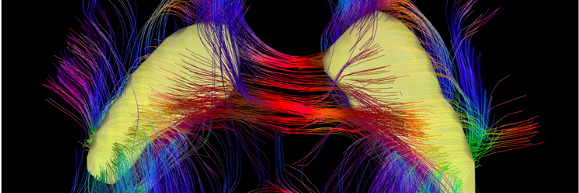
Interdisciplinary Neuroscience: Admissions Requirements

Over 70 faculty spread across three colleges and 12 departments participate in the ING program. ING students receive their Ph.D. through the ING program but also have access to all the resources of any graduate student in the department of their advisor, referred to as their “home” department.
To be admitted, a student must have identified a faculty mentor and obtained their commitment for advisement. Prior to submitting an application, it is advisable to visit the faculty webpages of potential advisors or communicate with them directly to determine whether they are recruiting students. Faculty are listed under participating departments at the bottom of the Faculty page. You must list potential mentors on your application.
Applicants must submit all materials directly to the Graduate College using the online admission process before their admission can be considered. Required materials include:
- A completed University of Delaware Graduate College application.
- A bachelor of science (B.S.) or master of science (M.S.) degree from an accredited college or university. A minimum undergraduate GPA of 3.0 on a 4.0 system is required. A master of science degree is not required for acceptance into the doctoral program.
- Optional submission of quantitative and verbal GRE score.
- All foreign national applicants for graduate study at the University of Delaware are expected to meet UD requirements for foreign students described at http://grad.udel.edu. These include English proficiency official TOEFL scores, etc. (see the Graduate Admissions test scores page.)
- Applicants must submit an essay response to specific questions asked on the application, a resume and a statement of professional goals and objectives. (see the Graduate Admissions page on application essays).
- Applicants must arrange submission of at least three confidential letters of recommendation. All letters of recommendation should be submitted electronically through the Graduate College.
- One official transcript of all U.S. colleges and universities attended must be sent directly from the institution to the Graduate College or be provided in a sealed envelope with the application packet. Students who have attended the University of Delaware need not supply a transcript from UD.
- One official transcript of all non-U.S. based college and university records is required. The transcript must list all classes taken and grades earned. If the transcript does not state that the degree has been awarded, send a degree certificate that states that the degree has been awarded.
Prior Degree Requirements
A bachelor of science (B.S.) or master of science (M.S.) degree from an accredited college or university. A minimum undergraduate GPA of 3.0 on a 4.0 system is required. A master of science degree is not required for acceptance into the doctoral program.
Application Deadlines
For the annual recruitment cycle, applications must be received by December 1 and acceptance of admission offers are due on April 15 of each year. The Neuroscience Graduate Program also may consider applications throughout the year on a rolling basis. Students can enroll in the fall or spring semester or Summer Session.
Special Competencies Needed
Admission decisions are made by the Executive Committee of the neuroscience graduate program. Deficiencies in more than two areas of the below requirements will automatically result in denial of admission by the Executive Committee. Students will be admitted to the program based upon enrollment availability and their ability to meet the following minimum recommended entrance requirements.
- Acceptance by a primary advisor
- Financial support from the advisor’s funding, advisor’s department or from the neuroscience graduate program (see Part VI below).
- Satisfactory completion of prerequisites (Grade of C- or better)
- Math through calculus (2 semesters)
- Anatomy/Physiology (1 semester)
- Physics (2 semesters)
- Chemistry (2 semesters)
Admission Categories
Students admitted into the neuroscience graduate program may be admitted into one of two categories.
Regular. Regular status is offered to students who meet all of the established entrance requirements, who have a record of high scholarship in their fields of specialization, and who have the ability, interest and maturity necessary for successful study at the graduate level in a degree program
Conditional. Conditional status is offered to applicants who are seeking admission to a degree program but lack specific prerequisites needed in the University of Delaware degree requirements. All conditional requirements must be met within the deadline given before regular status can be granted. Failure to meet the conditions by this deadline is grounds for dismissal from the program. Students admitted with conditional status to a degree program are generally not eligible for assistantships nor fellowships.
The majority of students primarily receive support from three sources:
- Teaching assistantship (TA);
- Grants through their advisor;
- Fellowships from the University of Delaware or outside sources (federal or private foundations). Such support needs to be confirmed with the ING graduate director (Mark Stanton) before official acceptance into the ING program.
University Statement
Admission to the graduate program is competitive. Those who meet stated requirements are not guaranteed admission, nor are those who fail to meet all of those requirements necessarily precluded from admission if they offer other appropriate strengths.
